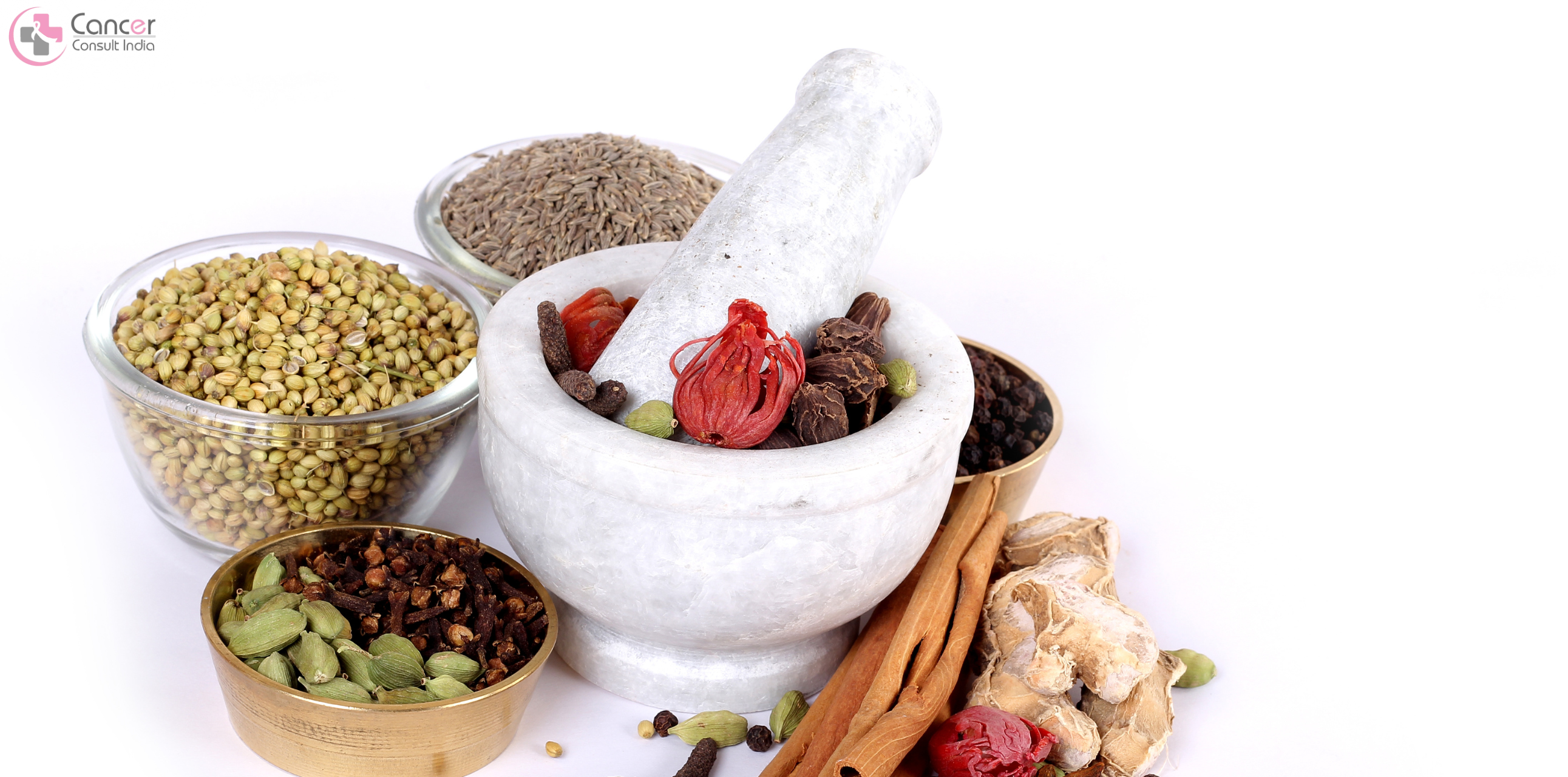Dr Manish Singhal - The best Cancer Specialist in Delhi
What is the Truth Behind Indian Spice's Link with Cancer?

Indian cooking uses many different kinds of strong spices. These seasonings not only delight our taste buds but also make them world-famous. For many centuries, people have been using them not only for flavoring food but also for healing purposes.
However, some scientists believe there may be a connection between cancer and these types of species recently. When working as an Oncologist in Noida, Dr Manish Singhal gets questions from patients and others about whether or not they can help prevent or treat cancer. So, let us look at what science says about it.
Spices Have Always Been Medicine
Spices are important in Ayurveda, a traditional Indian system of medicine. Curcumin in turmeric is considered powerful because of its anti-inflammatory and antioxidant properties. There are other examples too, such as garlic, and ginger that are believed to be good for health because they contain antioxidants.
The idea behind this ancient knowledge about herbs was right all along – now scientists are starting to investigate these claims more closely to better understand how our bodies could potentially benefit from them concerning cancers especially.
A Golden Spice Called Turmeric
Turmeric has been studied more than any other spice in cancer research. Numerous lab experiments have shown that curcumin — found in turmeric — could stop cancer cells from growing further, even causing their death sometimes through apoptosis (programmed cell death).
An example would be 'Cancer Letters', a medical journal, that published a study that demonstrated how curcumin might inhibit proliferation among different types of malignant tumor cells by affecting various molecules involved within signaling pathways responsible for the development or progression towards malignancy.
Additionally, it's well a well-known fact that chronic inflammations often lead people to get cancer later on in life. So, everything that fights against it, such as curcumin, should always be encouraged.
However, bioavailability remains to be the biggest challenge of curcumin. When taken by mouth, it is absorbed poorly into our bodies, where it gets metabolized quickly before being excreted out again. This implies that eating turmeric alone may not provide enough amounts of this beneficial substance needed for optimal health benefits.
It has prompted researchers to find ways of maximizing its absorption, such as in combination with piperine derived from black pepper, whose ability to enhance bioavailability was found to increase significantly that of curcumin.
Ginger: A Peppy Defender
Ginger is an additional tang that might have anti-cancer attributes. It includes gingerol as well as shogaol, substances studied for their antioxidant and anti-inflammatory properties. New blood vessel formation, a precondition for tumor growth as per an Oncologist in Delhi, can be obstructed by these molecules while suppressing the multiplication of malignant cells.
For instance, according to the Journal of Nutrition and Cancer, they could also prevent colorectal cancer cells from expanding too rapidly when concentrated extracts were applied in laboratory experiments.
Inflammation reduction ability might help mitigate chronic inflammatory processes leading to cancers. This was seen during an investigation carried out on mice where it was found that doses equivalent to 100g fresh weight over 3 days caused complete remission even without any other treatment such as chemotherapy or radiotherapy.
Garlic: The Pungent Protector
Garlic has sulfur compounds like allicin, thought to possess anti-cancer features that can boost the immune response against malignant cells while acting as antioxidants safeguarding healthy ones from free radical damage known to cause cancer.
According to research published by The American Journal of Clinical Nutrition, high intake levels are associated with reduced risk rates for certain types, such as stomach & colorectal cancers. Although studies often consider dietary patterns rather than isolating effects specific foods like garlic alone may have on different forms of tumors.
Cumin and Coriander: The Heroes
Cumin may not be as popularized as turmeric, but still, it offers some potential to work against cancer due to its possession of thymoquinone. Early findings showed promise in inhibiting growths through cell line tests. This compound works best when combined with other spices.
So, add more cayenne pepper powder too! Another unsung hero – coriander seeds contain antioxidants that protect us against oxidative stress and reduce the chances of developing cancers caused by inflammation especially if we eat them raw since cooking destroys most of their benefits.
Conclusion
It’s common knowledge among cooks worldwide that spices offer more than just taste – they have been medicinally utilized since time immemorial backed by promising clinical trials from reputable institutions!
Whether or not certain varieties help prevent cancer remains up for debate, this does not mean we should disregard them completely but rather incorporate all this knowledge into our daily intake patterns alongside other healthy practices like physical exercises.
Thus, if you are fighting against any form of cancer, spice ought to be seen as a supplementary measure rather than replacement therapy given by Dr Manish Singhal, a Cancer Doctor in Noida from CCI. With unlimited healing powers found in naturally occurring substances, the continuous discovery should continue based on solid science behind various beneficial effects of seasonings’.




